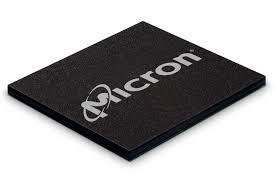Chinese engineers found guilty of stealing trade secrets from U.S. tech firm

Micron Technology is a U.S. chipmaker that produces storage and memory chips including RAM, flash memory chips and others. Before it was placed on the Entity List and banned from its U.S. supply chain, Huawei accounted for 13% of Micron's sales. Having American firms lose business was not the goal of placing Huawei on the list but it was an unfortunate side effect.
The three engineers involved in the scheme have been fined and will go to prison
This past Friday, according to Bloomberg, a court in Taiwan ruled that engineers from United Microelectronics Corp. (UMC) had stolen trade secrets from Micron. These engineers were accused of giving the IP to a company operating on the mainland backed by the Chinese government. Theft of intellectual property is one of the problems that the U.S. government and American companies have with China. The district court of Taichung ended up ordering that UMC pay Micron 100 million New Taiwan Dollars (equivalent to $3.4 million USD) and found three UMC engineers guilty of theft or assisting in the act. The three were sentenced to prison terms between 4.5 and 6.5 years and were also fined between 4 and 6 million New Taiwan Dollars ($135,000-$202,400 USD).

In 2018, Huawei was responsible for 13% of Micron's revenue
Even though China was caught red-handed, the communist Chinese government has continually denied that its companies steal trade secrets. The verdict comes at a bad time as the country tries to become a major player in semiconductors. The largest foundry in the country, SMIC, is arguably two years behind global leaders such as TSMC and Samsung; the pair are the two biggest independent foundries in the world.
After the verdict was announced, Micron said, "The misappropriation of trade secrets and their transfer outside of Taiwan is detrimental to the country’s entire semiconductor industry and threatens future competitiveness. This judgment further reinforces the importance of intellectual property protection in Taiwan, demonstrating that criminal misappropriation will be appropriately addressed." UMC said that it will appeal the decision and that it did not violate Micron's trade secrets. In a statement of its own, the company said, "In its appeal against the ruling and the excessively disproportionate penalty, UMC will cite many irregularities in both the investigation and the case itself.
According to the indictment, UMC employee Rong Leh-tian instructed UMC's Kenny Wang to use Micron's design for UMC products in order to reduce the time it takes UMC to develop chips. The third engineer from UMC that was involved, J.T. Ho, was working for both UMC and Fujian Jinhua Integrated Circuit Co. The latter is a Chinese chip manufacturer that benefited from the IP theft. Both Ho and Wang copied Micron's DRAM data onto their own devices and used it while developing such chips for UMC.
In rendering its verdict, the court said, "J.T. Ho earned two salaries respectively from UMC and Jinhua, so it is very clear he intended to use [Micron data] on mainland China. Kenny Wang and Rong Leh-Tian both leaked Micron’s trade secrets to UMC for the use of UMC's relevant business units ... and the final research was to be transferred to Jinhua for mass production, so they had the intention to use [Micron’s data] in mainland China. The defendants' conduct has led to Micron’s loss of advantage and competitiveness in the market of products connected to the leaked trade secrets and undermined Micron’s interests."
The defendants were paid for their illegal activities. Ho received 5 million New Taiwan Dollars ($168,700 USD) from both UMC and Jinhua. UMC paid Wang 1.5 million New Taiwan Dollars ($50,600 USD) and Rong 1.6 million New Taiwan Dollars ($54,000 USD). The penalties announced by the court will force the trio to give back those payments and more.










Things that are NOT allowed: